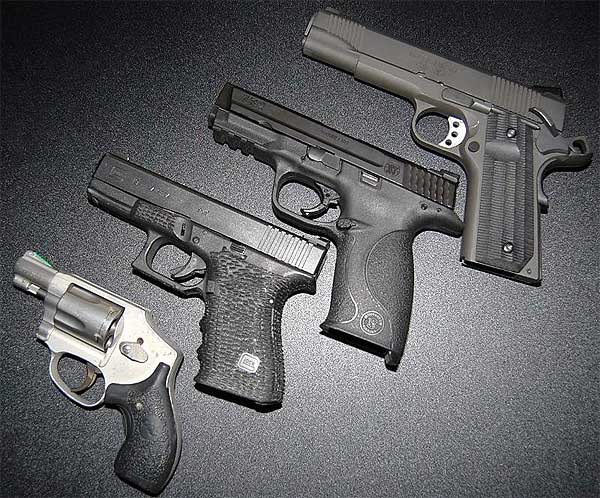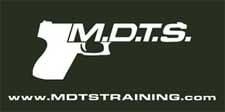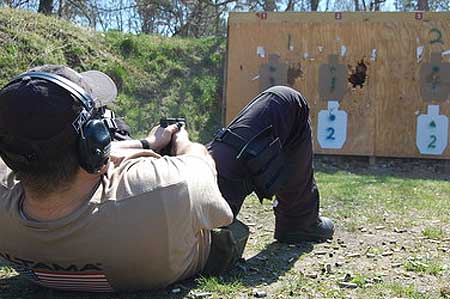Selecting a Handgun for Personal Protection
By Chris Fry


Utica, NY –-(Ammoland.com)- Selecting a handgun for personal or home protection is a very individual subject.
I am often asked what gun I recommend and will usually give suggestions or offer a few elements to consider, rarely suggesting a specific make, model or manufacturer.
Here are some points to consider before you purchase:
1) The gun has to fit your hand. A lot of people buy guns that are simply too big (the grip) for their hand. This is mainly done because the individual “likes” a certain gun or someone told them that is the gun they should buy because that’s what they have or they like.
Again, this is a highly individualized subject. I know a guy who was told that he HAD to have a Beretta 92F (M9) because that’s what the military uses. He went out and bought one and that gun was way too big for his hand and had all sorts of problems shooting that handgun well. So, just because someone tells you that’s what you should have does not mean its right, nor does it mean because someone is an “instructor” they will know what YOU should get or need. You need to do the leg work and research to find what best suits your needs. Companies like Glock make several models in varied sizes of the same caliber in order to meet people of varied sizes and needs; G26, G19, G17, G34- all 9mm.
2) Along the lines of fitting your hand, whatever gun you choose it must be possible for you to reach and operate the controls TOTALLY one handed. The safety, magazine release, slide stop/release, all must be accessible with the firing hand only (strong or support). If you have to fight with just one hand (due to injury or because your possibly holding your daughter or son’s hand at the time) but have only trained to use both your hands to run the gun then you have a potentially lethal problem. If you have to extremely modify or compromise your grip on the gun which increases the chance of dropping, severely inhibits response time or compromises safety then you have a problem and need to find a better alternative.
3) If that gun will be dedicated to protecting your life, the life of your family or perhaps a third party, it should be relatively simple to operate. I am not a fan of guns with multiple action types: Single action/Double action etc. I don’t like guns with de-cockers or even thumb safeties. The more mechanical devices on the gun, the longer it will take you to fully understand and become proficient with its manual of arms. If you have the time to study the manual of arms for your handgun and become proficient thats great but remember, we don’t get to choose when trouble will find us. You may buy your new gun today and tomorrow night is when that critical incident could occur. Simple, striker fired guns provide you and possibly others in your family with immediate options with little study of the gun.
4) It must be robust- if this gun will be protecting your life then it better be reliable. Some guns are known for being finicky. That’s not a positive attribute for a personal protection handgun, in my opinion. It should be able to take a large amount of abuse and still work great. It should be able to fire 500+ rounds in a training class without having issues.
5) Can you conceal the gun? If you posses a concealed carry license and choose to carry your handgun daily then it is your job to conceal that handgun. Some guns are more difficult to conceal than others depending upon factors such as handgun size, your body composition (tall, lean, short or heavy), most common mode of dress (do you wear a suit or skirt daily) and the environment you reside in (cold, hot, humid etc). All of these factors along with selecting a robust holster and the best carry position for you must be considered.
6) Finally- think about the future. If you are married or have kids, can your spouse, son or daughter pick up the gun and operate it under bad circumstances? It may be you who is sick or injured in bed and one of them may have to defend you with the handgun. Is it a relatively simple gun to extend into their visual plane, touch the trigger and press off rounds? If you have difficulty with the gun at the range shooting paper targets and under minimal stress then how will it be for them when a home intruder is coming up the stairs and you are incapacitated, injured, bed-ridden or unable to do anything?
What about caliber?
What caliber gun is best for personal protection is an age old debate; some say .45 stops them every time while others state that 9mm or .38 will get the job done equally well. Lately, I keep hearing and am told that .40 is the only way to go. My advice is to get a gun that fits your hand, buy lots and lots of ammunition and practice placing the rounds exactly where you want them to go. The next time you consider getting into a debate about caliber and which is the best man stopper consider this: The Peter Soulis Incident
Start slow and build up speed, add some stress and some shoot-no-shoot decision making. Shot placement is far more important than what caliber gun your choose to carry, but, like many things in life it takes some work to get good at. Select a handgun that works for YOU and then go do the work.

About Chris:
Chris Fry is the owner and director of training and curriculum development for Modern Defensive Training Systems in Utica, N.Y. where he conducts courses in reality driven practical combatives skills, extreme close quarters physical defense, tactical folding knife and edged weapon combatives and combative pistol, carbine and shotgun skills. MDTS offers a variety of courses for responsible citizens, corporations, law enforcement and the U.S. Military with a singular goal of providing up to date, realistic and practical personal protection training. Visit: www.mdtstraining.com
